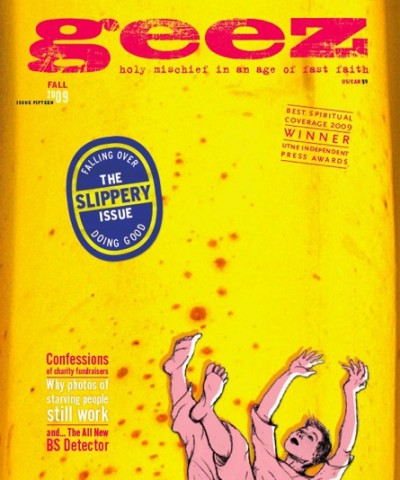The more politically correct, the better
If we care at all about justice, the very least we can do – in our lives, in our public debates and in our thinking and worrying over a topic – is to use politically correct language. I don’t mean as a rule of etiquette to which decent people generally ascribe. I mean: if something is unjust, one way you can tell is if it’s not PC enough.
If we care at all about justice, the very least we can do – in our lives, in our public debates and in our thinking and worrying over a topic – is to use politically correct language. I don’t mean as a rule of etiquette to which decent people generally ascribe. I mean: if something is unjust, one way you can tell is if it’s not PC enough.
Political correctness is a bit like the cork in a wine bottle, or the cotter pin in a trailer hitch, or the doorknob on a door – a very small thing behind which lies a whole body of analysis about oppression and the way it operates in the world. Every time I use or defend politically correct language, I draw on that body of analysis, without always articulating the full force of it. When I do try to articulate it, more important to me than getting my terms right is whether or not my understanding of oppression has evolved.
Here’s an example: Some years ago, my friend from Bulgaria complained to me that his fellow students in Canada were ridiculous. He had needed to connect with the president of the international students’ association, but was frustrated in his search because the people directing him to the woman never said she was black. So his search took longer than necessary. If he had known the phrase, he would have said, derisively, that they were being too “politically correct.”
I laughed at his outrage, but it made me uncomfortable. At that time, I knew very well that I, too, would have used many, many other words to describe someone before saying they were black. This is because I thought being anti-racist meant overlooking someone’s colour in order to judge them on the content of their character, so to speak.
It is not (or not only) because I, or the students, were more comfortable with euphemism than with “straight-talk” that we avoided words like “black,” although that is what my friend implied. “Straight-talking” language, like any other style of language, does not somehow describe reality more accurately than other kinds of language, although it may seem that way because it is familiar. What is familiar seems natural, what is natural must be better, because, well, it’s natural. Or so the thinking goes. But this ignores the fact that all of these are human categories, created and sustained by humans using language.
In the case above, “straight-talk” would have missed something important, something we were aware of without being able to express it, something, indeed, captured by the epithet “politically correct.” To avoid describing someone as “black” was a clumsy attempt to acknowledge and counterbalance the fact that if she had been white, no one would have been expected to mention it.
“White” was, and mostly remains, the default. It is, therefore, permitted “the privilege of having an obvious meaning … of being a defining, not a defined, category,” says Alistair Bonnett in Race, Identity and Citizenship. Being white is understood as being a neutral human, the standard by which all others get measured. Now, I would be better able to explain to my friend that colourblindness isn’t primarily a problem because it leads to inefficiencies of description, but because it dodges the realities of racism. When you are white, you are in a position to ignore those realities. They don’t affect your life except to allow you to avail yourself of all the privileges of being white without having to feel implicated in racism. Being colourblind is actually being blind to whiteness, and applying it to people of colour does not erase racism, it makes it more difficult to see it in operation. The assumption that someone will be white unless they are explicitly noted to be something else, then, is just a small part of the much larger parcel of racism.
That’s the long explanation. The short one is that rather than taking political correctness to ridiculous lengths, as my friend thought, we were not being PC enough. The term we did or didn’t use was not the point. We had a beginner’s grasp on what it meant to be anti-racist, but there was a long way to go. There always will be.
I don’t expect all things from political correctness. Language is only part of the way we construct reality. Refusing to use racist language (or sexist, ableist, classist, homophobic, transphobic or sizeist language) will not do the heavy lifting required to dismantle systems of oppression. It won’t stop wars, close Guantanamo, set up affirmative action programs, decrease infant mortality in Africa or make reparations to indigenous people. But it might give us the tools to discuss why and how these things need to be done. Changing the world requires work. And a good starting point is consideration of the analysis that informs political correctness. If you ask yourself, “Is this PC enough?” you won’t go wrong. Political correctness is a doorknob – go ahead, pull on it.
Miriam Meinders is a member of the Geez board.



Sorry, comments are closed.